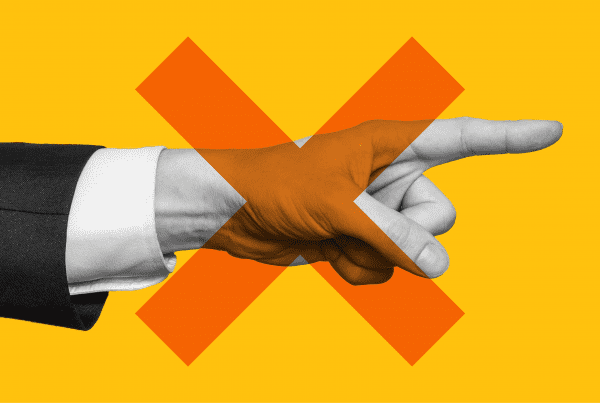The Big Story: Southwest’s Snarky Joke On Ending Free Bags Sparks Outrage
“‘It will be the thumbnail for the Harvard Business Review case study of destroying a brand and an entire company,’ one person wrote in the comments.”
How to destroy a brand in one easy lesson
By Kim Fox
2-minute read
Based on my personality and skillset, I know at least four professional job opportunities I’d turn down no matter how desperate I was.
- HR director. I’d want to scream “What were you thinking!?” all day long.
- Middle school math teacher. I still don’t understand new math. Or is that old math now?
- Forensic entomologist. Bugs, eww.
- Actuary. Spreadsheets make my eyeballs bleed.
Last week, I added another one: public relations consultant for Southwest Airlines.
If you’re late to the party, Southwest Airlines has made some changes to its operations that have its loyal customers – of which I am was one – looking for other options. For years, Southwest has charmed frequent travelers with zero checked luggage fees, easy sit-where-you-want boarding, a generous points policy and a snarky self-confidence as it thumbed its nose at other carriers that just didn’t get it.
Well, I don’t LUV the changes SWA has chosen to make as demanded by activist investor Elliott Investment Management. Goodbye open seating. Hello bag fees and higher redemption rates to use points.
The company began dribbling out announcements last July with a press release proclaiming Southwest Airlines Launches Enhancements to Transform Customer Experience and Improve Financial Performance.
Additional updates about modifying their operations have continued through March. The most recent touted it would “create choice for current and future Customers of America’s largest domestic carrier.”
With that, Southwest has dispensed with the quirks and perks that differentiated it from their dull-as-dishwater competitors. Now it’s all about efficiency and driving revenue and shareholder value. But disguised in spin language that indicates these changes are a benefit to their customers. Or at least its “most loyal” customers.
Just take a look at some quotes from their most recent emails, videos and website updates:
“We understand the news we announced last week [about bag fees] represents a big shift for our airline and left you with questions on what this means for you, our most loyal and engaged Customers. You are at the forefront of our decisions announced last week as well as our future decisions as we develop our product offering of tomorrow.”
“We’re on a transformational journey to give you, our Customers, more choices when you travel. While there are many changes ahead, our transparency and Hospitality will remain.”
Translation: You’re going to hate our changes but at least we’ll smile while we collect your baggage fees. And why the weird capitalization of Customer?
So, what lessons can we learn from Southwest’s continuing saga?
Don’t insult your Customers’ intelligence. These changes were not made with me in mind. It had nothing to do with input from me. The reasons were financial, so just be honest about it.
Don’t dribble out the bad news. The changes Southwest is making have been coming in waves. Had they announced everything in one fell swoop, I might have been “over it” by now. Now I’m just waiting for what’s next.
Be prepared for the backlash. I don’t “tweet” much; usually just about the Tennessee Titans. I have been expressing my displeasure on X with each new irritating announcement. Southwest responded to me with the generic, “We understand your disappointment, etc., etc.” I then got a survey asking how my online experience was. Might want to shut that down for a bit.
Listen. Hear what your Customers (capital C) are saying and respond with authenticity.
As a communications professional, I know the PR folks at Southwest Airlines were put in an impossible position. More than once, I’ve been handed a pig and asked to put lipstick on it. What I’ve learned is it doesn’t feel very good when you’re on the receiving end.
I’ll remember that not-so-good feeling the next time a crunchy situation needs communicating about. We all should.
Contributors: David Shifrin, Emme Nelson Baxter
Image Credit: Shannon Threadgill




